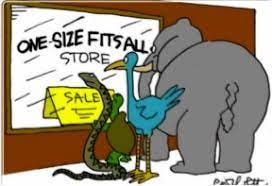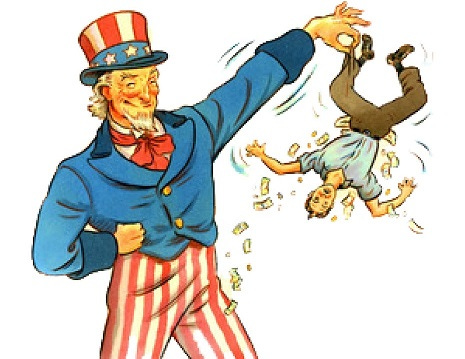Public schools across the land are facing a new wave of competition from private schools. The fuel behind it all is growing school voucher programs. They are funded by state taxes, but parents can use the money to pay for any school. Somewhat related are charter schools, which are also funded by taxes, but are freed up from a lot of educational bureaucracy and teacher union contracts. Presently, sixteen states have school voucher programs, with some states having multiple programs in operation. Several other states are considering it. My home state of Texas does not currently have school vouchers, but the movement to establish it is gaining momentum.
The pushback from advocates of public education, especially teachers unions, is fierce. Such a program, they claim, would destroy our highly-exalted public schools! Education, they say, is a basic human right, and an “investment” in the future.
Let me begin by saying right up front: the education of our children is far too important to be entrusted to politicians, bureaucrats, and teachers unions. History has re-proven, countless times, that free enterprise is the most efficient and effective way to provide the goods and services that consumers want and need. The worst way is via taxation and politics. Education is no different from anything else of economic value, and the fact that it’s important does not change that fact. Furthermore, public sector labor unions, especially teachers’ unions, are all about maximizing salaries, and have nothing whatsoever to do with improving the quality of education.
The advantages of private schools is evidenced by the numbers, as students from them consistently outperform public school students in nearly every subject. Furthermore, private school students score higher than public school students on college entry exams such as the SAT. Whenever government socializes any service, the biggest victims are the “little guys”: the poor, the underclass, the minorities. The winners are the politicians and bureaucrats.
Yet the biggest problem with government-run education is trying to cram everyone into a one-size-fits-all system. People and families are diverse. They each have unique values they wish to teach their kids, and if government runs the schools, then conflicts are inevitable. Shall prayer be allowed? What type of prayer (Christian, Jewish, Muslim, Buddhist, etc.)? Teach creationism or evolution? Shall sex ed be taught? What is the view on gender identity and sexual orientation? Distribute contraceptives? Then there’s politics: conservative, liberal, or other? Discipline and corporal punishment? What about clothes and grooming (especially if it involves religion or culture)? What vaccinations shall be required? The list goes on. Bottom line: one size does not fit all.
Parents want choice! But the pro-government-education crowd hangs onto the notion that “choice” means only that politicians get to choose.
The primary reason why governments across the land commandeered the education industry back in the late 1800s had nothing to do with inferior schools or unaffordable tuitions. No - the main reason was to get ahold of those young, impressionable minds at an early age and teach them to be obedient little citizens who pledge their allegiance to the flag, to believe that government always knows best, and to not flinch when the tax man comes.
Which brings us to the barrier that holds back private education: we all must pay taxes to support the government school monopoly. After taxes take their bite, only the wealthy can afford private schools. The nationwide K-12 cost-per-student average for government schools is about $13 thousand annually (varying greatly by state). Imagine if you had that $13 thousand back! Meanwhile, private school tuition costs average nationwide at about $12 thousand a year (also varying by state). If families were allowed to keep the money and shop around for the best education value, then the private school industry could explode, and the competition would surely bring the costs down.
So where do vouchers and charter schools fit into this picture? Well, it’s roughly a 50-50 mixture of public and private. The state government still collects and distributes the dollars, but parents get some choice in deciding where and how it’s spent. Another variation on the theme is education tax credits. I would speculate that tuition tax credit programs are probably closer to 75% private and 25% public, because the government never actually gets its hands on the money. But let’s point out that vouchers and credits and charter schools don’t help home schoolers one smidgeon.
Make no mistake: the ultimate goal should be to get government out of the education business. Vouchers and credits may have some transitional value - a temporary tool to help the private school industry get up and running until competition gets established.
Education is a service that somebody has to pay for, and nobody has a “right” to force somebody else to pay for your stuff. Competition and choice are good things. Would opening up the government education monopoly to competition destroy it? If given the choice, and families opt to not send their kids there, then maybe it needs to be destroyed.








Worth noting is that Sweden has a fully vouchered school system, which includes private schools. Many of those private schools are non-profit, which might be a big surprise even to those who know of Sweden's system.
Of much less surprise is the Left's attitude. Sweden used to be pointed at noddingly by leftists extolling big government, but we hear much less of that of late, and I suspect it's because they finally learned the details (market-friendly economy, relatively flat taxation, school choice, no minimum wage, and other bits that are anathema to the American left).
At least some of their attempts to proclaim Sweden's choice program a failure have increased as school choice gains are, as this CATO article notes, both inaccurate and fallacious. As in, choose a conclusion, and come up with some word salad to defend it, reality be damned.
https://www.cato.org/commentary/sweden-school-choice
“The advantages of private schools is evidenced by the numbers, as students from them consistently outperform public school students in nearly every subject. Furthermore, private school students score higher than public school students on college entry exams such as the SAT. Whenever government socializes any service, the biggest victims are the “little guys”: the poor, the underclass, the minorities. The winners are the politicians and bureaucrats.”